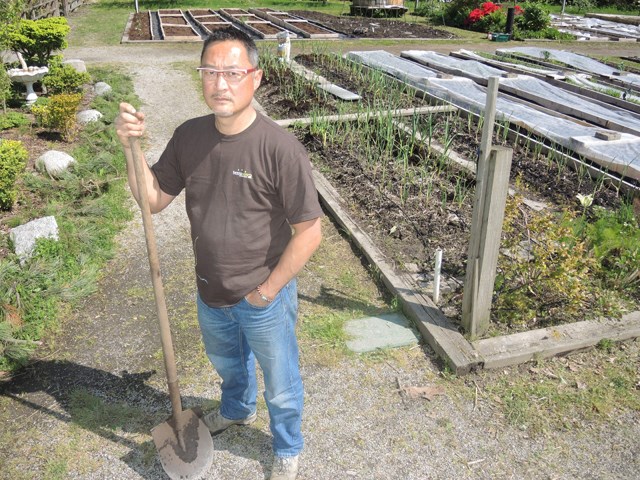As Richmond works to cultivate its urban areas – and not just the Agricultural Land Reserve – one other B.C. community is on the cutting edge of urban agricultural initiatives.
Across the water in Victoria, one city staff member has been assigned the specific responsibility of managing all urban production initiatives on public and private land. In fact, food systems coordinator Virginie Lavallée-Picard’s role was created as a result of Victoria’s “growing in the city” community consultation process that took place in 2015 and 2016.
“The goal (of the consultation) was to increase food production and, really, it was a response to a lot of community interest for urban food production,” Lavallée-Picard said during a talk given at Kwantlen Polytechnic University’s Place-Based Food Systems Conference last Thursday.
Under Lavallée-Picard’s supervision, boulevard gardening, community gardens and orchards, urban food trees, rooftop greenhouses, beekeeping, hen keeping and selling produce are promoted and encouraged.
For example, one of the steps taken by the City of Victoria was to amend bylaws to support urban farmers who wanted to sell their produce, whether it was off-site at a market, or simply from their own home. Now, all a resident needs is a business license – available for as low as $25 – to sell their produce.
Additionally, the city revised its community garden policy and took an inventory of all city land with future community garden potential. This inventory was then used to create a map for anyone interested to see options where they could apply to start a new garden.
Here in Richmond, there is a lot of enthusiasm surrounding community gardens.
In partnership with the Richmond Food Security Society, the city has 321 community garden plots across nine different sites growing food, flowers and other plants, run. But according to a staff report from the spring, all of the community garden sites are full and there is a waitlist of 270 individuals.
“The (community) interest has been quite heavily in the form of community gardens,” said Paul Brar, manager of parks programs with the City of Richmond. “What we’re finding is they’re a great place for people to get to know each other…and create that sense of community.”
As a result of this growing interest, city staff reported to council that they would like to see additional options for community gardens explored.
While Richmond doesn’t have a specific “food systems coordinator” or allow community garden-grown food to be sold, awareness is still a key next step for the city to move forward with its urban gardening initiatives, according to Brar.
“We’d like to see an increased understanding and awareness from the public about what urban agriculture is and how they can get involved,” said Brar, adding that it’s important to see the city’s food system as a spectrum and for residents to know they “can get organic, great food that you can produce on your own in your neighbourhood or in your backyard.”



